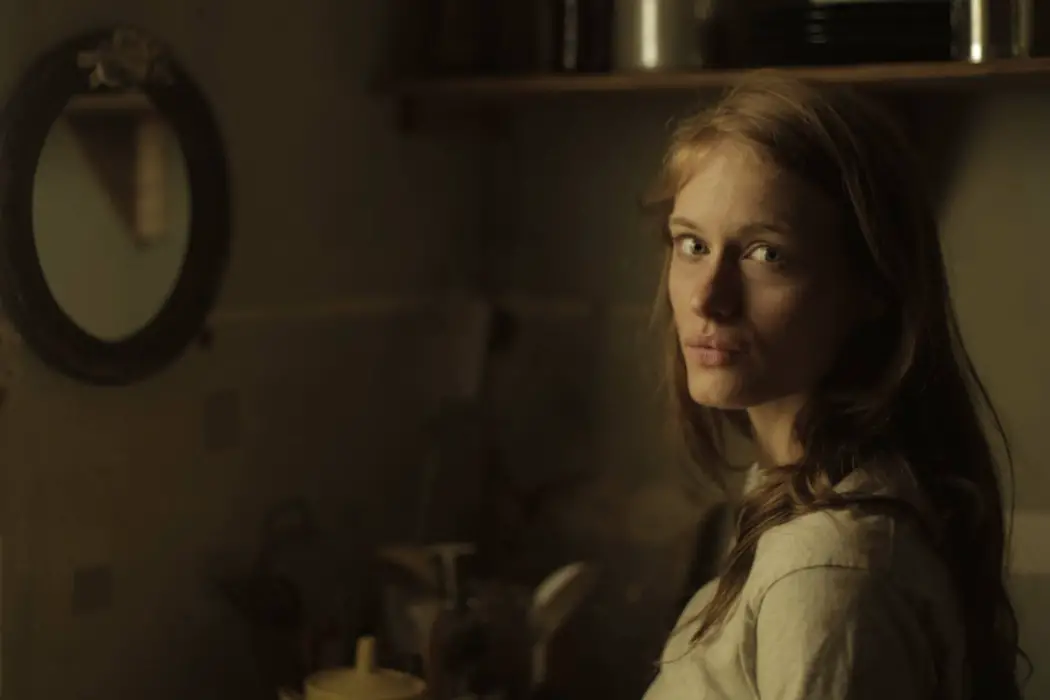“It Was A Very Personal Experience,” Ramaa Mosley Talks About The Intimate Process Of Making LOST CHILD

"We don’t make movies to make money, we make money…
I had the pleasure of speaking to Ramaa Mosley about the process of making her second film Lost Child, which happens to be completely different from the first, The Brass Teapot. Ramaa discusses what it was like to stop waiting for the “OK” from executives, or waiting for a budget, and just going out there and making the movie you want and, most importantly, making it for yourself.
Samantha Celentino for Film Inquiry: This is your second feature, and they were very different movies, different tones and everything, what was different the second time around?
Ramaa Mosley: Yeah, I mean, so when I made my first movie, I was trying to make a really big film with an indie budget, and this time, I decided to reverse engineer it. I wanted to make a very intimate, small film. So that was the beginning of it, it was just to go out and not wait for permission anymore. So, the big difference was that I was trying to work on character development more and work on actor performances.
Secondly, I made it with family, I made it with my husband and my closest friend who was my co-writer, Tim Macy. We made it in a small town with the help of these amazing local people and family members. It was just an intimate, deep process. It was just really, really joyful. We didn’t know going into it if we would show the film. We hoped maybe a small festival, but we weren’t really sure. We didn’t go into it thinking it’d be seen by a lot of people. We just wanted to make it for us and we’re not going to wait around anymore.
And that’s what made it really special, it was a very personal experience. And now to share it with people and to talk to people like you and go to festivals and share what people feel about it… because when I was sitting there in the woods in the Ozark making this movie, I thought maybe no one would see it.

That’s really cool, actually, that you did it for YOU and you did it with your husband. I like that you made it just for you and not for the sake of making a big Hollywood film, that must have been nice.
Ramaa Mosley: I swear, it was the most fun I’ve had. It was hard work, working in 90% humidity and all the bugs in the woods. That was tough… but I’ve been looking back at behind-the-scenes footage and it was just so beautiful and so fun.
So, why did you choose the Ozark for the setting?
Ramaa Mosley: We chose it because we wanted to use a small town where we could get help, and Tim’s father lives in West Plains. It was also out of necessity with how we wanted to do it.
What inspired the story then? Did you choose the location first and then write the story?
Ramaa: Yeah, we totally did. What happened was that I was so depressed after my first movie because I was waiting for years for another movie to come…. I hit this point where I just wanted to make a movie. And my husband was like “you gotta listen to this interview with the Duplass brothers, they just made movies in their parents home with their friends”, and my husband said I should just do that!
My co-writer was totally in agreement, and then we started to think about what resources we have between us. And the best thing was West Plains, so we started with the knowledge that our story would take place in the Ozark. I knew I wanted a female lead who was going through a life altering experience, like being a “loner” and self-sufficient and learning to open up and find her heart.… and I was also going through something with my own brother who I hadn’t spoken to 15 years.
Also, a friend of mine was in this situation where she ended up with a little girl and she wasn’t sure if she could handle adopting her and was worried that she might be trouble. So, all this was going around in my head and the story started forming around a woman’s search for her brother and the stigma of children who have been abandoned.

Wow, that’s really interesting! That’s so cool that it was kind of a backward process, like you found the location first and the story came from there. That sounds like a ton of fun.
Ramaa Mosley: It so was! It was an incredible way to make a film.
I think I like the story of how your movie was made as much as I liked the movie!
Ramaa Mosley: Thank you, and thanks for taking the time to talk to me!
Film Inquiry would like to thank Ramaa Mosley for taking the time to speak with us.
Lost Child had a limited release on September 14th.
Does content like this matter to you?
Become a Member and support film journalism. Unlock access to all of Film Inquiry`s great articles. Join a community of like-minded readers who are passionate about cinema - get access to our private members Network, give back to independent filmmakers, and more.
"We don’t make movies to make money, we make money to make more movies." -Walt Disney













